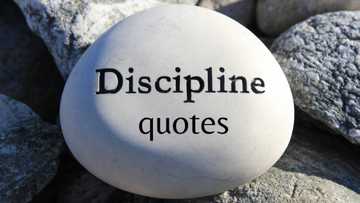Aims and objectives of Nigerian education
If you were wondering what the aims and objectives of Nigerian education are, why do Nigerians go to school and what do they want to achieve by being educated, we will answer this question in this article. The direct answer would be getting a good-paid job. However, one could name other aims like gaining knowledge, becoming civilized to decide how best to live, etc. So, here we are going to talk about the aims and objectives of education in Nigeria.
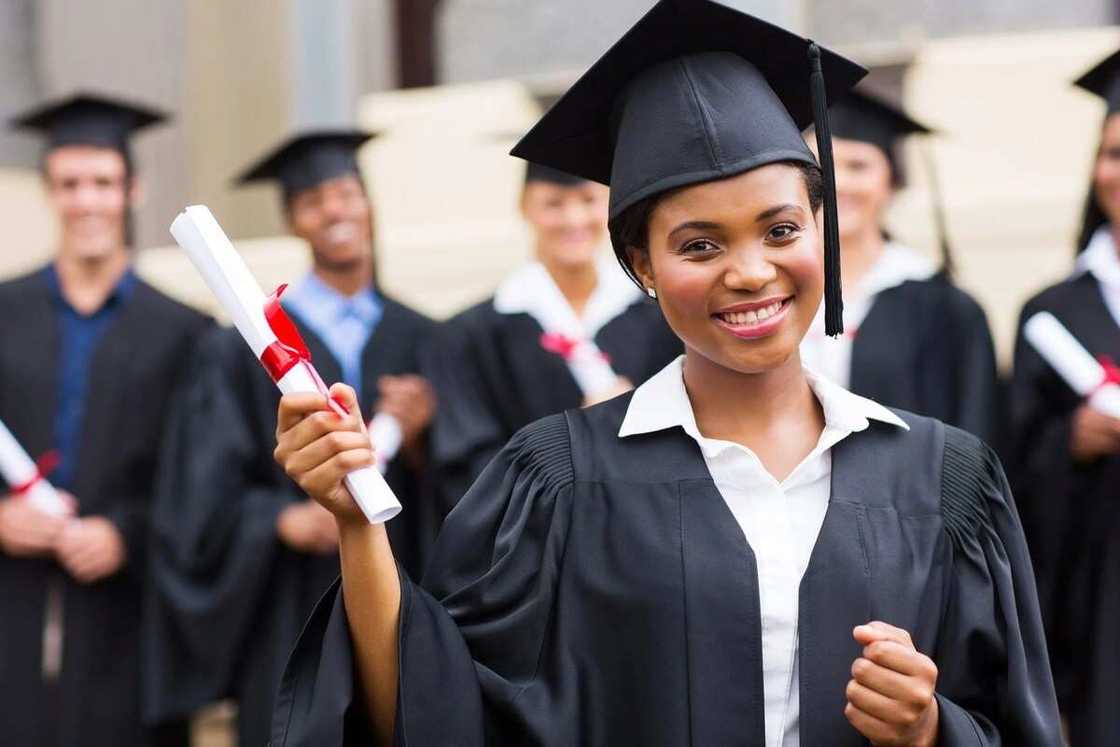
Source: Depositphotos
Photo from esamaz.com.br
Objectives and aims of education
Words aim and objective are, as a matter of fact, synonymous but linguists see the difference between them stating that the word aim is concerned with purpose and word objective is concerned with achievements.
When talking about educational objectives, they refer to gaining knowledge, a new ability, a skill and so on. Aims are related to looking forward into the future career that goes beyond the studies.
As you can see, aim is a wider concept that objective. However, this difference is quite tricky as sometimes aim sets a goal. Sometimes the aim is phrased as a goal.
When talking about education, the objective is a short-term goal which students achieve within the scope of a particular course. Both aim and objective are used in goal-oriented education. For example, in some educational organisations learners are given not goals but objectives to achieve particular goals.
What are the aims of education?
Education is an instrument for developing an individual in social, mental, physical, emotional, moral and psychological aspects. Education can be considered a process which enables people to understand the difference between good and bad attitude, right and wrong behaviour. Education can be defined as a combination of tools and techniques used to gain empirical knowledge about the useful elements of life and how to make use of them.
U.S Publisher and politician, Malcolm Forbes once said: “Education’s purpose is to replace an empty mind with an open one”. Education can be described as an agent of social mobility. Education helps to move an individual from the lower to the upper class.
Nigeria’s philosophy of education implies that
- Education is an instrument for national development, and the interaction of persons and ideas are all aspects of education.
- Education fosters the worth development of the individual, for each individual’s sake, and general development of the society.
- The training of the mind in the understanding of the world around.
- The acquisition of appropriate skills and competencies as equipment for the individual to live in and contribute to the development of the society.
READ ALSO: Universities without JAMB - Top 10

Source: Depositphotos
Photo from happydays-365.com
What are the objectives of education according to the Nigerian education policy?
Nigerian education policy published in 1977 and revised in 1981 and 2004 states that realizing that part of the national goals can be achieved with the use of education as a tool. Education policy should be based on the overall philosophy and goals of the nation. The overall philosophy of Nigeria is to:
- live in unity and harmony as one indivisible, indissoluble, democratic and sovereign nation founded on the principle of freedom, equality, and justice;
- promote inter-African solidarity and world peace through understanding.
National Policy on education in Nigeria include five main national aims and objectives which have been proven to be the necessary foundation for the building the country’s future. They are:
- a free and, democratic society
- a just egalitarian society
- a united, strong and self-reliant nation
- a great and dynamic economy
- a land full of bright opportunities for all citizens
Nigerian educational policy provides the aims and objectives for the long-term development of the education system in the country. They are the following:
- Education shall continue to be highly rated in the national development plans because education is the most essential instrument of charge. Any fundamental change in the intellectual and social outlook of any society has to be preceded by education.
- Life-long education shall be the basis of the nation’s educational policy.
- Education and training facilities shall continue to be expanded in response to social needs and made progressively accessible to afford the individual a far more diversified and flexible choice.
- Educational activities shall be centered on the leaner for maximum self-development and self-fulfillment.
- Universal Basic education in a variety of forms; depending on needs and possibilities, shall be provided for all citizens.
- Efforts shall be made to relate education to overall community needs.
- Educational assessment and evaluation shall be liberalized by their being based in part on a continuous assessment of the progress of the individual.
- Modern education techniques shall be increasingly used and improved upon at all levels of the education system.
- The education system shall be structured to develop the practice of self-learning. The government in this regard shall continue to encourage the establishment of Young Readers Clubs in schools.
- At any stage of the education process after junior secondary education, an individual shall be able to choose between continuing full-time studies, combining work with study, or embarking on full-time employment work with study, or embarking on full-time employment without excluding prospect of resuming studies later on.
- Opportunity shall continue to be made for religious instruction; no child will be forced to accept any religious instruction which is contrary to the wishes of his or her parents.
- Physical and health education shall be emphasized at all levels of the education system.
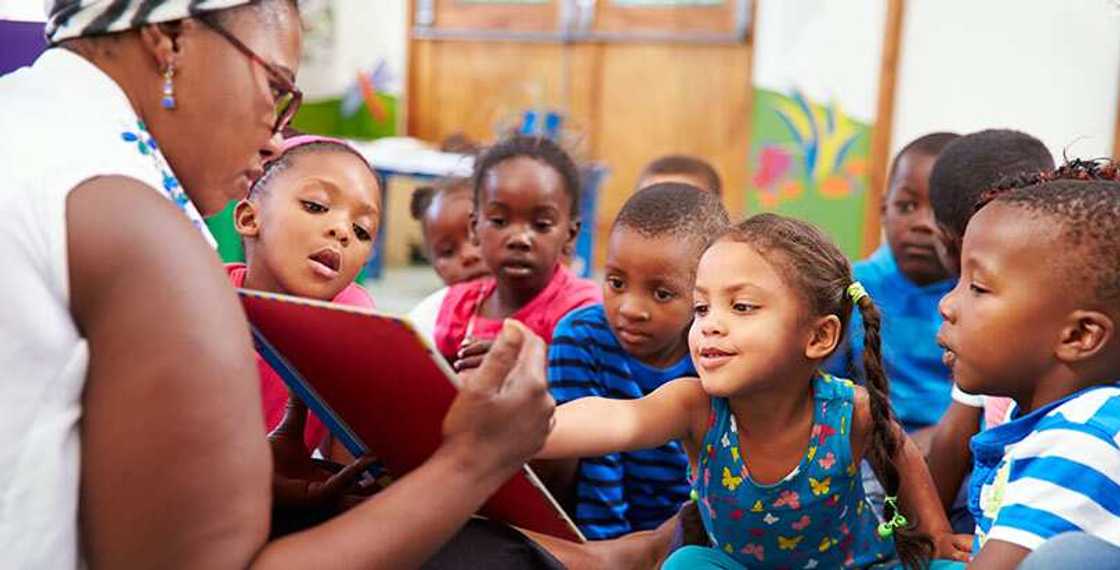
Source: UGC
Photo: newyorkschooltalk.org
If you would like to see how the implementation of these aims and objectives looks like in reality, here is an example of pre-primary school and a list of aims and objectives to implement into the education process:
- make a transition from the home to the school maximally smooth;
- prepare a child for the primary level of education;
- provide adequate care and supervision for the children while their parents are at work (on the farms, in the markets, offices, etc.);
- inculcate social norms;
- inculcate in the child the spirit of inquiry and creativity through the exploration of nature, the environment, art, music and playing with toys, etc.;
- develop a sense of co-operation and team-spirit;
- learn good habits, especially good health habits;
- teach the rudiments of numbers, letters, colours shape, forms, through play, etc.
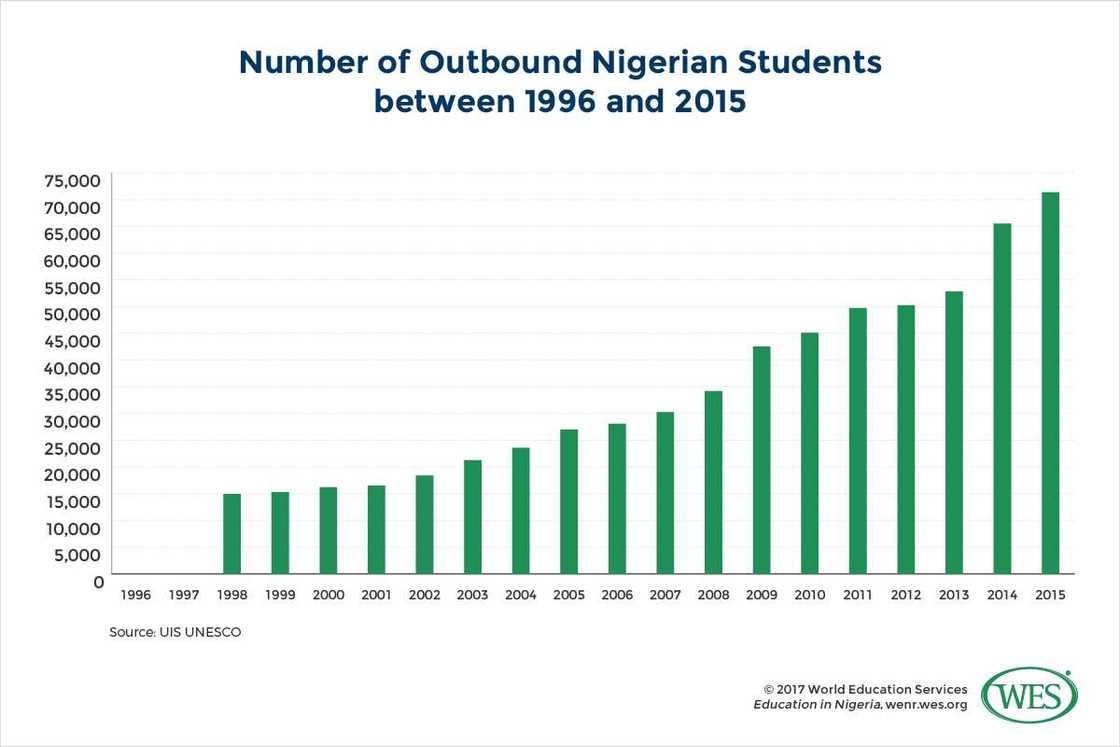
Source: Depositphotos
Photo from wenr.wes.org
What are the aims and objectives of Nigerian education today?
While Nigeria is one of the most developed countries on the African continent, the rate of unemployment in the country is still very high. It shows the vulnerability of the Nigerian system of education.
The statistics show that as much as 95% of Nigerians get educated in order to earn a living. Similar to other peoples, Nigerians would not study in schools and universities if not for the expectation of finding a job.
There are many problems in the Nigerian system of education. For example, a high number of graduates does not reflect in the national development. This is because most Nigerians are not willing to be professionals, apply their knowledge in the workplace and seek solutions to life problems. Education is turned into a means of survival. It relies on the Nigerian government to provide direct jobs.
The problem with direct employment is that Nigerian education system has been completely turned into a process of providing employment. This means that students are not interested in obtaining knowledge but the grades and certificates. They have been convinced by their parents, teachers, and society in the conscious and subconscious way that the main objective of gaining an education is to earn a living.
The thing is the education system should not serve to stop or reduce unemployment. Nigerians need to raise themselves to create job themselves and not rely on the government. They need to become entrepreneurs, farmers, traders, and so on. Such an education crisis can be overcome if they will seek education for the purpose of knowledge.
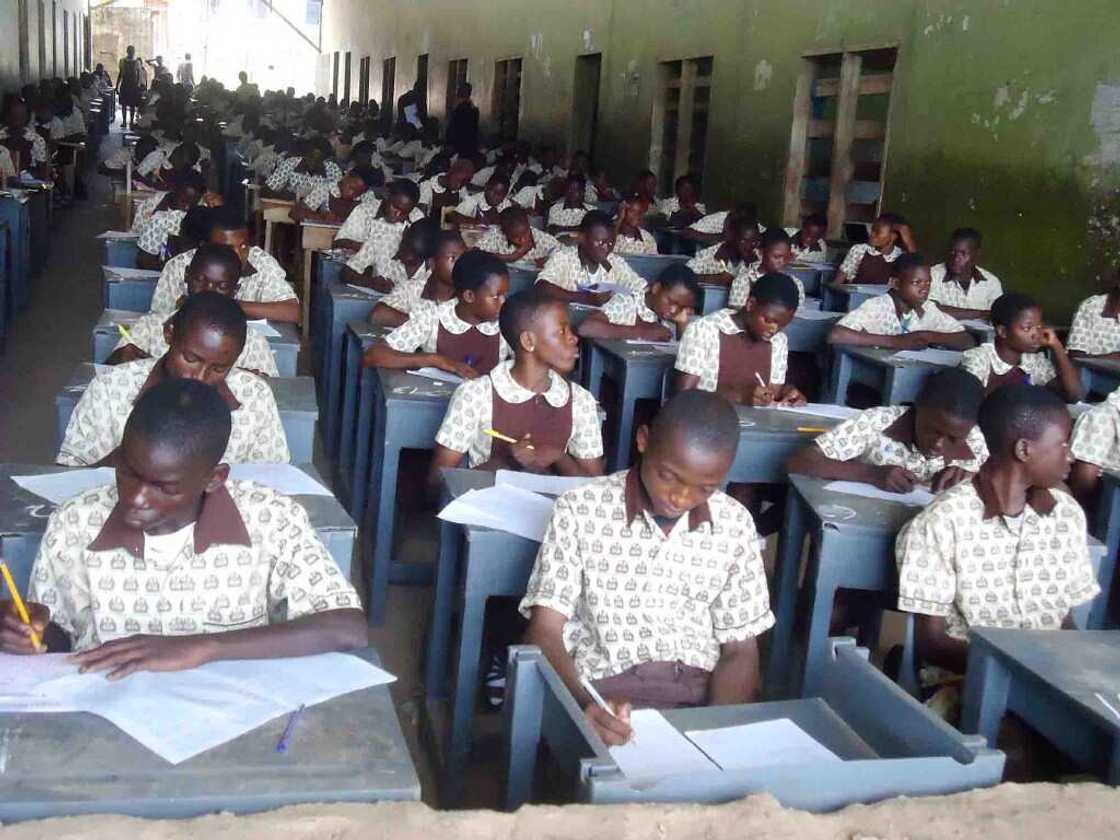
Source: Depositphotos
Photo from kokofeed.com
Hope you found this article useful. The aims and objectives of education in Nigeria are based on the current state of affairs in the country and its educational policy. Nigerian education is experiencing serious problems but there are also significant achievements in this area.
READ ALSO: JAMB/UTME 2019: List of accredited registration and testing centres for all states
Source: Legit.ng


